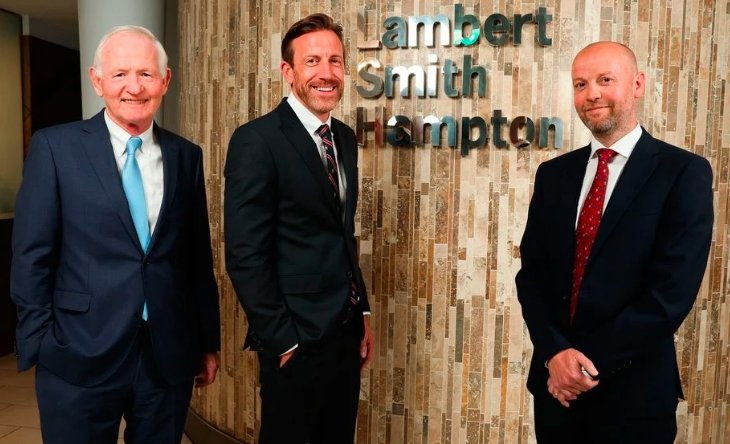Lambert Smith Hampton (LSH) has snapped up a majority stake in Scottish property consultancy Ryden, marking a bold move to strengthen its footprint across Scotland and the north of England.
The acquisition, announced Thursday, brings together over 1,600 professionals across LSH, Ryden, and fellow new partner SHW. It’s the latest in a string of strategic plays by LSH, part of the Connells Group and ultimately backed by Skipton Building Society. The aim? A broader national reach and a sharper edge in the UK commercial property scene.
Big moves north of the border
LSH isn’t tiptoeing into Scotland. This is a full step forward.
Ryden, headquartered in Edinburgh, is one of the most recognisable names in Scottish property consultancy. With offices spanning Glasgow, Aberdeen, and into northern England, its 120+ staff bring decades of local experience. That’s not something LSH could build overnight.
The move comes just days after LSH inked a similar deal with SHW in the South East. Clearly, there’s a bigger picture taking shape here — a network of regional experts under one strategic umbrella.
“Ryden’s reputation in Scotland is second-to-none,” said Ezra Nahome, LSH’s chief executive. “This partnership makes so much sense as LSH seeks to grow to become the UK’s leading commercial advisory firm.”

Ryden gets scale, LSH gets local clout
For Ryden, the deal isn’t about handing over the reins. They’ll keep their brand, identity, and leadership. What they gain is access — to LSH’s infrastructure, back-office support, and that all-important national client base.
And for LSH? It’s all about local boots on the ground.
Alan Gilkison, Ryden’s managing partner, put it like this: “The businesses are an excellent fit in terms of geographical coverage and areas of expertise. The investment will allow us to develop our core strengths and expand into emerging sectors.”
One line in particular stood out: “There is a common desire to deliver growth.” That says a lot. This isn’t just a play for size — it’s about synergy. Real collaboration.
A closer look at who’s who
Let’s break it down — who are the major players now working together?
| Firm | Region Covered | No. of Professionals | Notable Strengths |
|---|---|---|---|
| Ryden | Scotland + North of England | 120+ | Regional consultancy, local market knowledge |
| LSH | UK-wide (30 offices) | 1,400+ | Commercial real estate advisory, national scale |
| SHW | South East England | ~100 | Strong client ties in South East |
Each has a niche. Together, they’re building a network that spans coast to coast — without losing the value of local knowledge.
Keeping the brands, sharing the brainpower
One thing the deal won’t touch is branding.
Ryden and SHW will keep their own names and identities. LSH isn’t interested in homogenising the portfolio. Instead, the model here looks more like a federation — distinct local brands plugged into a central engine.
That might prove to be a smart play. Clients trust familiar faces. And regional expertise isn’t something you can fake with a London HQ and a LinkedIn post.
• LSH gets to tap into decades of community trust.
• Ryden and SHW get the scale to punch above their weight.
• Clients get continuity with new capabilities.
Everybody wins — at least on paper.
Behind the money: Connells Group and Skipton
What’s powering this expansion? One word: backing.
LSH is part of Connells Group, the UK’s biggest residential estate agency network. Connells itself is owned by Skipton Building Society — one of the largest mutuals in Britain.
That means firepower. It also means stability. Unlike private equity-backed firms that can change strategy overnight, Skipton is in it for the long game.
LSH’s approach has been a mix of organic growth and acquisitions. With SHW and Ryden now under its wing, the strategy is clear: build a national presence, one regional star at a time.
Scottish market timing may be just right
Scotland’s commercial property market has been through some twists lately.
Office occupancy’s been a challenge post-COVID, and retail continues to face structural headwinds. But industrial and logistics space? Still going strong. And infrastructure investment — especially around renewables and energy — has opened new doors.
This makes Ryden’s expertise in planning, development, and project delivery more valuable than ever. They know the land, the councils, and the business environment.
LSH gets a shortcut into all of that.
One sentence says it best:
This isn’t just a buyout — it’s a bolt-on braintrust.
What happens next?
There’s no full merger planned — at least not yet.
Both Ryden and SHW will keep operating under their own banners, with leadership remaining in place. But joint bids, shared client accounts, and back-end collaboration? That’s already underway.
The teams will have access to each other’s networks, tech systems, and insights. And for employees? There’s a bigger canvas now.
More roles. More projects. More career paths.
The integration process is expected to focus on client overlap and efficiency, not sweeping change. And with over 1,600 professionals now involved, keeping things aligned without smothering local culture will be the next real test.


















